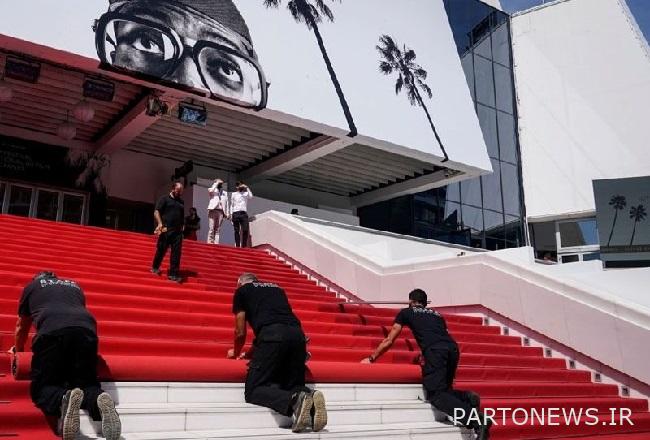7 Iranian judges at the Cannes Film Festival; What is the benefit of home cinema?

Cannes Film Festival was born 14 years after the announcement of the Venice Film Festival. The French Film Festival, which many at the time saw as a response to the unipolarity of the Venice Film Festival in Europe and the streamlining of the Oscars at the international level.
Theater News Base: The Cannes Film Festival soon became a haven for world-renowned filmmakers with its professional and popular policies, and was able to take first place from Venice. From that year until today, no film festival in the world has been able to be as influential, current, and trusted by a wide range of the international community. A festival that, during all these years, did not see the politics of festivals like Berlin, did not, like the Oscars, secure its margins, and did not sacrifice its position and balance like festivals like Venice, sacrificing expediency and individual beliefs.
Therefore, the countries with the film industry soon opened their eyes to this event. Iranian cinema, like the cinema of all these countries, has a special view of Cannes. The foot of Iranian cinema to the Cannes Film Festival opened in the fourteenth period of this event with the film Cyrus the Great in 1961. However, the presence of an Iranian judge in this festival dates back to the forty-sixth period. According to Cannes’s custom, the event usually uses people as judges who have previously honored or contributed to the festival.
Abbas Kiarostami
Although the name of Abbas Kiarostami is associated with the Cannes Film Festival, this connection was not limited to the presence of his works in this event and his numerous honors. Kiarostami was the first Iranian artist to attend the Cannes Film Festival as a judge.
In 1993, Jill Jacob, the then director of the Cannes Film Festival, invited Abbas Kiarostami to judge the competition. In the year that Louis Mall; The French director was the chairman of the jury at the Cannes Film Festival, and Kiarostami was the first Iranian to appear as a judge in the competition section of the event.
In 2001, Samira Makhmalbaf became the judge of the chest section of the Foundation and the short film competition. He who with the movie Apple In the section, a kind of look had shone in previous years and with the film black board He competed in the Cannes Film Festival in 2000 and won the Jury Prize for the film. He was one of the youngest judges at the Cannes Film Festival.
Abbas Kiarostami again
In 2002, for the first time, two Iranian referees competed in two Cannes divisions. Bahman Ghobadi was the judge of the Golden Camera and Abbas Kiarostami was the judge in the chest section and short films of the competition, which was chaired by Martin Scorsese.
Hattrick Kiarostami
In 2005, Abbas Kiarostami had his third judging experience in Cannes, this time in the guise of the Golden Camera Jury given to the first films.
Niki Karimi
After Samira Makhmalbaf, Niki Karimi was the second female filmmaker in Iranian cinema to be selected as a judge in 2007. Nikki Karimi was the judge of the Foundation’s films and short films. Prior to this selection, he had participated in a kind of look with the film One Night.
Kiarostami Historiography
In 2014, Abbas Kiarostami was elected for the fourth time as a judge, and this time as the chairman of the jury for the Foundation’s films and short films. The Foundation’s films include works by students from schools and film colleges around the world, which are presented to Cannes and selected by a committee, and are part of the official program of the Cannes Film Festival.
With this judging, Abbas Kiarostami became the most honorable Iranian filmmaker in Cannes, who won various awards from this festival, and with 5 films for which he was nominated for the Palme d’Or, he has the highest number of participants in the competition section of this film festival. . He is also the only Iranian filmmaker to have won the Palme d’Or so far.
Leila Hatami
In the same year, 2014, Leila Hatami became the third Iranian female filmmaker to experience judging at the Cannes Film Festival. Hatami was the second Iranian figure after Kiarostami to judge in the main part of the Cannes Film Festival.
کتایون شهابی
In 2016, Katayoun Shahabi; The Iranian producer and broadcaster was selected as one of the judges of the main section of the Cannes Film Festival. She is the second Iranian woman filmmaker and the third artist in our country to have participated in the competitive part of this festival.
And now Asghar Farhadi
And now that Iranian cinema, after 6 years, has no nomination among the judges of this film festival, Asghar Farhadi has become the fourth Iranian filmmaker to be judged in the competitive part of this festival.
This happened at a time when many media outlets were speculating about the election of Farhadi as the chairman of the jury in Cannes.
Farhadi has won the Best Screenplay Award for Seller, in addition to receiving many Cannes Side Awards, such as the World Church Award and the François Chalet Award. He also won the Cannes Grand Jury Prize for Champion last year.
Now, the question arises whether the presence of Iranian judges at the Cannes Film Festival has helped or will help improve the quality of Iranian works? The second question is whether the gap between Iranian and world cinema will be filled with such presence or More? These are questions that experts and critics must answer.
The 75th Cannes Film Festival will be held in person from May 17 to 28 (May 17 to June 27).

